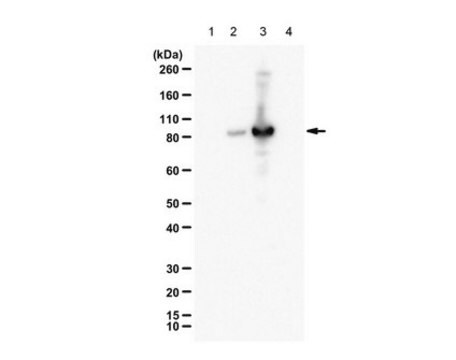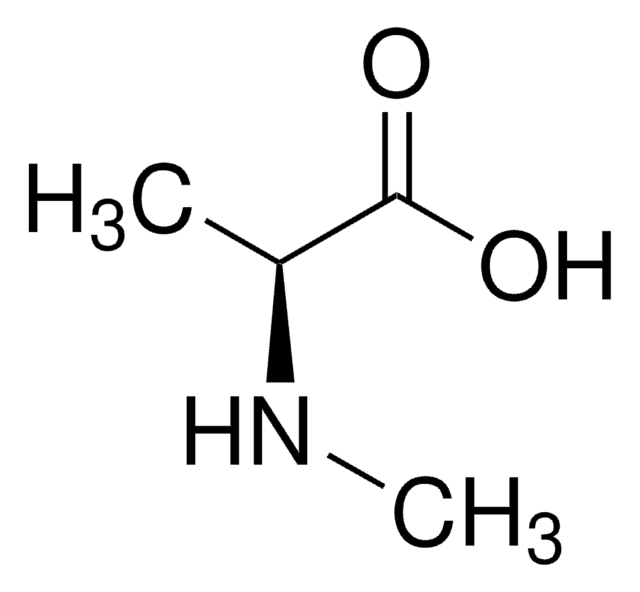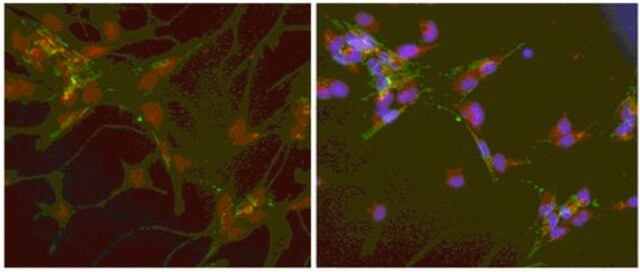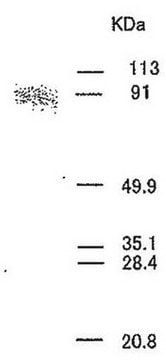ABN1000
Anticuerpo anti-MAGL
from rabbit, purified by affinity chromatography
Sinónimos:
Monoglyceride lipase, MGL, Monoacylglycerol lipase, MAGL
About This Item
WB
western blot: suitable
Productos recomendados
biological source
rabbit
Quality Level
antibody form
affinity isolated antibody
antibody product type
primary antibodies
clone
polyclonal
purified by
affinity chromatography
species reactivity
human, mouse, rat
technique(s)
immunohistochemistry: suitable
western blot: suitable
NCBI accession no.
UniProt accession no.
shipped in
wet ice
target post-translational modification
unmodified
Gene Information
human ... MGLL(11343)
General description
Immunogen
Application
Análisis mediante inmunohistoquímica: un lote representativo detectó la MAGL en tejido de hipocampo humano (Mulder, J., et al. (2011). Brain. 134-1041-1060).
Neurociencia
Señalización del desarrollo
Quality
Análisis mediante inmunotransferencia western: 0,5 µg/ml de este anticuerpo detectaron la MAGL en 10 µg de lisado de tejido cerebral de ratón.
Target description
Physical form
Storage and Stability
Other Notes
Disclaimer
¿No encuentra el producto adecuado?
Pruebe nuestro Herramienta de selección de productos.
Storage Class
12 - Non Combustible Liquids
wgk_germany
WGK 1
flash_point_f
Not applicable
flash_point_c
Not applicable
Certificados de análisis (COA)
Busque Certificados de análisis (COA) introduciendo el número de lote del producto. Los números de lote se encuentran en la etiqueta del producto después de las palabras «Lot» o «Batch»
¿Ya tiene este producto?
Encuentre la documentación para los productos que ha comprado recientemente en la Biblioteca de documentos.
Nuestro equipo de científicos tiene experiencia en todas las áreas de investigación: Ciencias de la vida, Ciencia de los materiales, Síntesis química, Cromatografía, Analítica y muchas otras.
Póngase en contacto con el Servicio técnico








